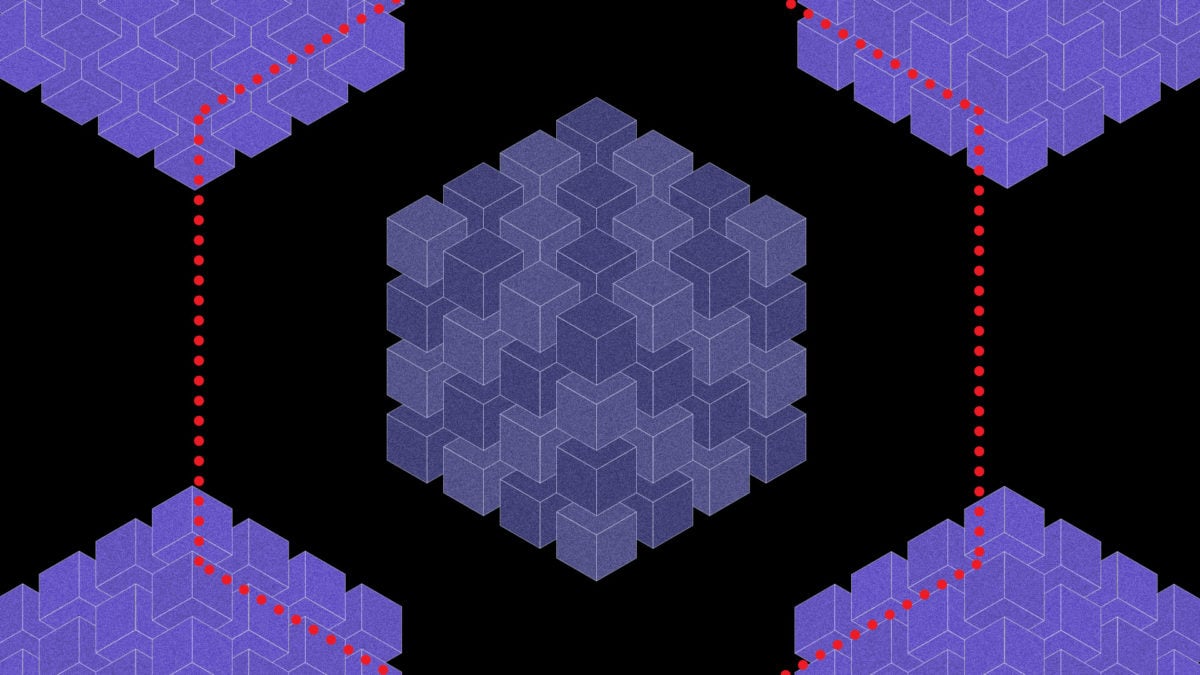The DOJ's antitrust chief talks blockchain's 'transformative effect' in speech on competition

Quick Take
- During a virtual event on Thursday, U.S. Assistant Attorney General for the Antitrust Division Makan Delrahim spoke about the implications —both good and bad — of blockchain tech in the context of his division’s work.
- “The potential of blockchain is the ability to operate a marketplace or network without a centralized intermediary,” he remarked. “Again, the ability to lower networking costs has important implications for markets the Division regularly considers in the context of conduct or merger investigations.”

Blockchain technology — particularly its application in the field of decentralized marketplaces — could have huge implications for the U.S. government's antitrust work, according to U.S. Assistant Attorney General Makan Delrahim.
Delrahim spoke about these potential ramifications during a virtual event on Thursday, according to a published version of his prepared remarks. The event, the Thirteenth Annual Conference on Innovation Economics, was hosted by Northwestern University.
In a wider sense, Delrahim's remarks touched on the question of preserving competition in an arena of fast-moving technology innovation, with blockchain applications serving as a prime example.
He spoke about him and his staff's involvement in a course at the MIT Sloan School focused on blockchain, and remarked that "[a]fter completing that course, we recognized the transformational effect that blockchain solutions may have on technology, businesses, and society in general over the coming years."
Delrahim went on to say (emphasis ours):
"Blockchain is a 'general purpose technology' whose applications have the potential to transform the entire economy. We have seen the wide-ranging impact of other general purpose technologies such as railroads, electricity, telecommunications, and information technologies like the Internet. Each of these played a starring role in the evolution of our society; each spurred incredible innovations that fundamentally altered our ways of life. Importantly, these general purpose technologies carried the promise of toppling existing monopoly structures, as well as the prospect of new monopolists emerging and seeking to entrench themselves. Blockchain today holds a similar promise—with the added potential to maintain more decentralized marketplaces. Its success, though, is not yet guaranteed. I expect the Division will play a critical role in ensuring market conditions are conducive to unleashing blockchain’s revolutionary potential."
After offering a brief overview of how a blockchain works in practice, Delrahim said that the tech "could have profound implications for many industries and issues the Division analyzes, from financial services and credit monitoring to healthcare and health insurance." He also spoke about its use for managing intellectual property rights as well as its potential to "dramatically [decrease] networking costs, which relate to the value created for users when more users join a network."
"The potential of blockchain is the ability to operate a marketplace or network without a centralized intermediary. Again, the ability to lower networking costs has important implications for markets the Division regularly considers in the context of conduct or merger investigations," Delrahim continued.
Potential upsides aside, Delrahim cautioned that the division needs to be focused on preventing potential competitive abuses among the actors who make use of the technology.
"Incumbents could use blockchains anticompetitively to exclude competition," he stated. "For example, consider seafood harvesters that establish a permissioned blockchain to track food through the supply chain and assure quality and sourcing. If multiple competing harvesters conditioned access to that permissioned blockchain on agreeing to certain prices or output, competition and consumers would suffer tremendous harm."
He reiterated the division's plan to continue training its staff on emerging technologies, citing artificial intelligence as well.
"Therefore, it is vital for antitrust enforcers to understand how the emerging technology works, how it can impact competition, and what existing companies may be doing to implement it," Delrahim told event attendees. "We cannot fall behind and learn, only too late, that entrenched monopolists have taken anticompetitive actions to eliminate the threat from blockchain technology to their business models. That would harm competition and thus consumers."
© 2023 The Block. All Rights Reserved. This article is provided for informational purposes only. It is not offered or intended to be used as legal, tax, investment, financial, or other advice.

